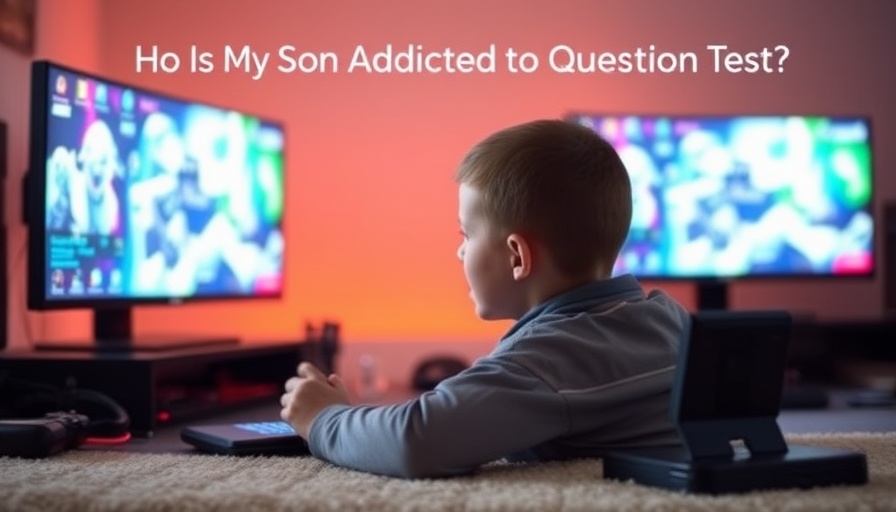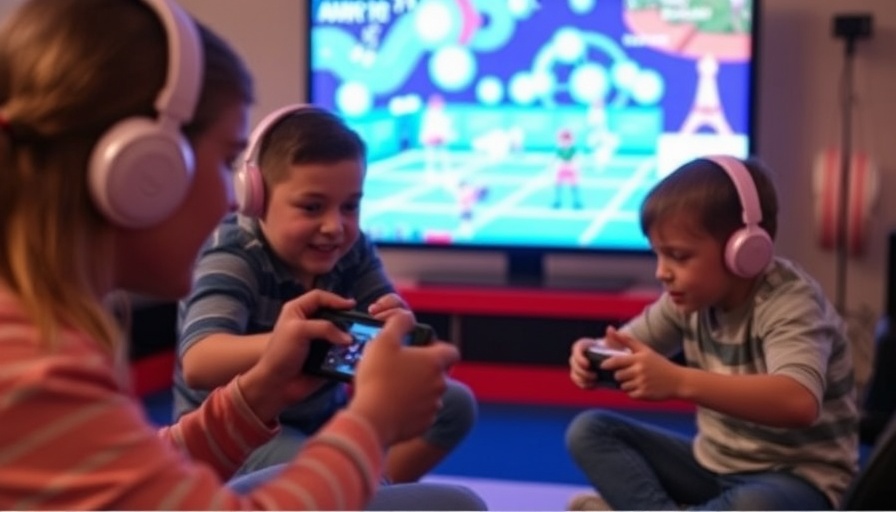
Determining Gaming Addiction: What Every Parent Needs to Know
As technology infiltrates every aspect of our lives, gaming has become a double-edged sword for families. While gaming can provide an exciting escape and stimulate cognitive skills, it can also lead to patterns of addiction. If you're a parent questioning whether your child's gaming habits are still healthy or have crossed into the realm of addiction, you're not alone. Thankfully, there’s a straightforward checklist that can help clarify this critical issue.
9 Critical Questions Every Parent Should Ask
Engaging with your child about their gaming habits can feel daunting, but asking the right questions can illuminate whether their gaming is merely a hobby or a sign of deeper issues. Here’s a simple nine-question assessment that can guide your understanding:
- Does your child prioritize gaming over other activities?
- Has there been a noticeable decline in academic performance?
- Does your child experience withdrawal symptoms when unable to play?
- Has he lost interest in previously enjoyed hobbies?
- Does gaming lead to conflict with family or friends?
- Has he ever lied about how much time he spends playing games?
- Does he use gaming to escape from real-life problems?
- Is the gaming time excessive, often beyond what the family considers reasonable?
- Has he expressed a desire to cut back on gaming but struggles to do so?
It's crucial not to jump to conclusions based solely on gameplay habits. Instead, evaluate overall behavior and emotional responses associated with gaming.
The Emotional Impact of Gaming Addiction
Many parents don't realize that gaming addiction can lead to issues beyond the gaming screen itself. Children who struggle with excessive gaming often face emotional challenges, including anxiety and depression. These children may find themselves isolated from their peers, leading to a loss of important social skills. Understanding the emotional ramifications of gaming addiction is vital for parents who want to foster healthy relationships with their children.
How to Approach the Conversation
Once you’ve evaluated your child's habits through these questions, it's time for a compassionate conversation. Create an open environment where they can share their thoughts without feeling judged. Ask them how they feel about their gaming practices. You might be surprised by their responses. Instead of setting strict rules immediately, consider discussing gaming limits, exploring interest in other activities, and encouraging balance.
Finding Balance in a Digital World
Today's parents have a challenging task in helping children navigate their relationship with technology. Instead of framing technology as the enemy, see it as a tool that can be mastered. Encourage healthy gaming habits, such as:
- Establishing screen time limits together
- Incorporating device-free family activities
- Promoting video games that foster collaboration rather than competition
- Setting reward-based gaming schedules
Such strategies can enable families to enjoy gaming responsibly while maintaining strong emotional and social bonds.
Encouragement for Parents: You’re Not Alone!
It’s essential to remember that you are not alone in this journey. Many parents are facing similar challenges. Organizations like Game Quitters provide resources, community support, and expert advice for those dealing with gaming addiction. Encouraging your child to join a supportive group can help them see they are not isolated in their struggles. There are many pathways to fostering healthier gaming habits.
Final Thoughts: Empowering Healthy Relationships with Gaming
As a parent, your role is influential in shaping your child's engagement with technology. Whether they enjoy a casual game or spend hours immersed in virtual worlds, knowing how to identify gaming addiction can bring peace of mind and direction. Consider the nine questions as a stepping stone toward open dialogue, understanding, and essentially, healthy boundaries.
Actively participate in shaping the narrative around technology and its uses in your household. By embracing discussions about gaming and its impacts, you can foster a healthier connection with technology in your family.
If you're concerned about your child's gaming habits or need guidance, consider resources like Game Quitters to learn strategies that can help. Together, we can create a future where technology is a source of joy and connection rather than loneliness.
 Add Row
Add Row  Add
Add 




Write A Comment